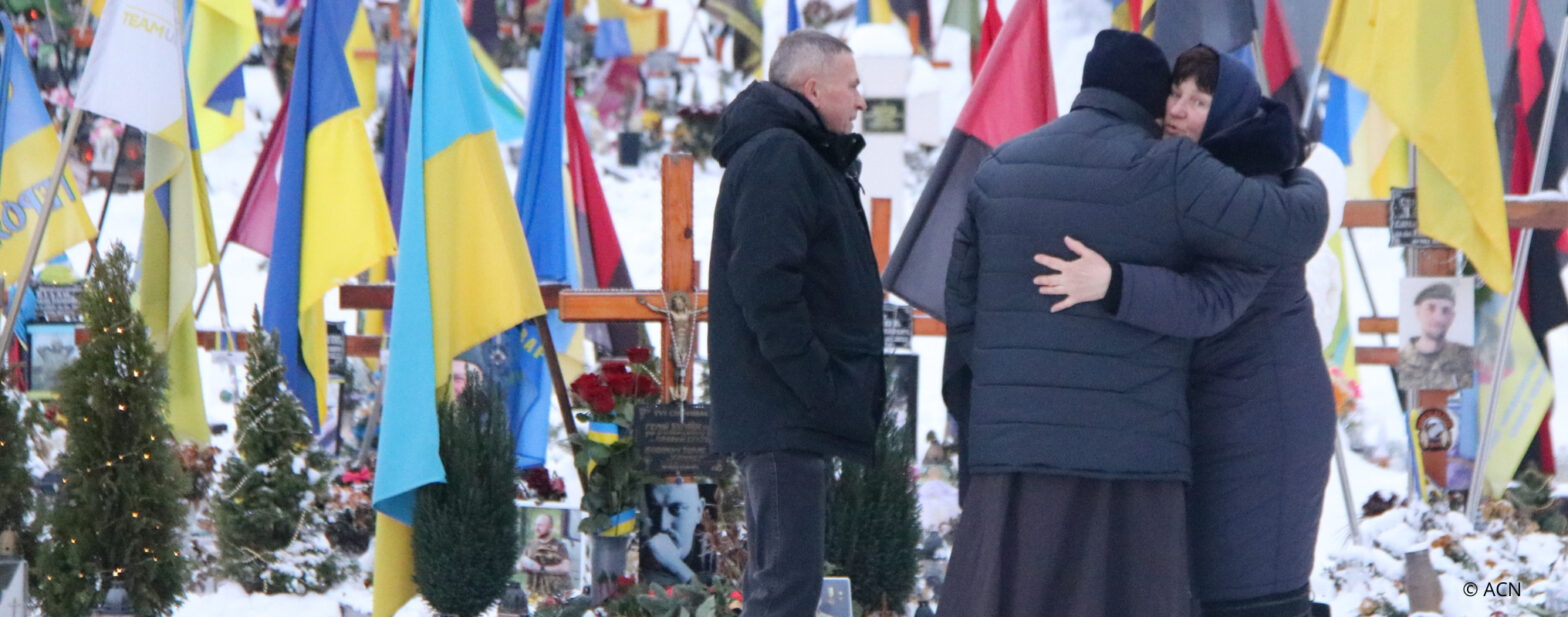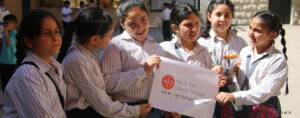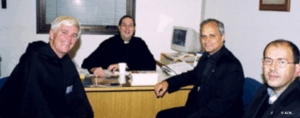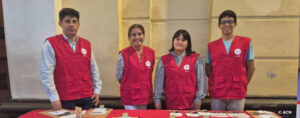Ukraine – Ten years after the beginning of the war in Ukraine, ACN will dedicate its 2024 Lent to standing by the suffering Church in the country and helping it bring God’s healing love.
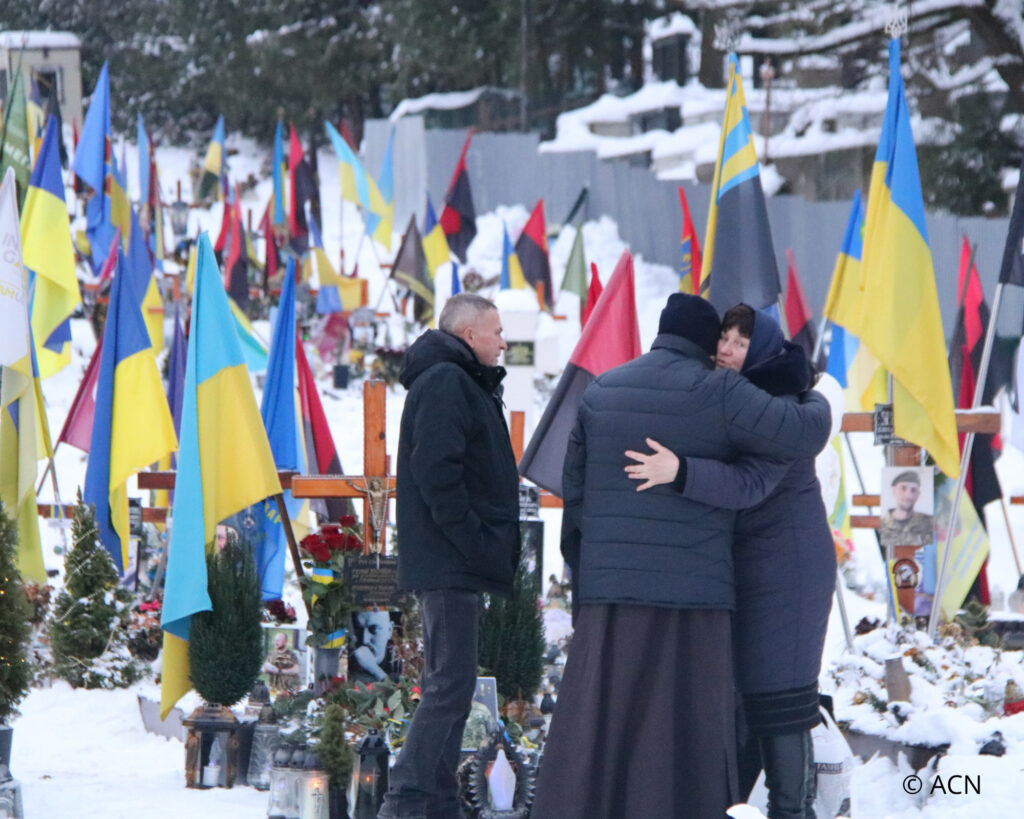
Speaking during a conference organized by Aid to the Church in Need (ACN) to mark the anniversary of the beginning of the international armed conflict and the launch of its annual Lent Campaign, Major Archbishop Sviatoslav Shevchuk said that the number of those killed, maimed, or traumatized due to the war in Ukraine continues to increase and the long-term effects on society are also becoming evident.
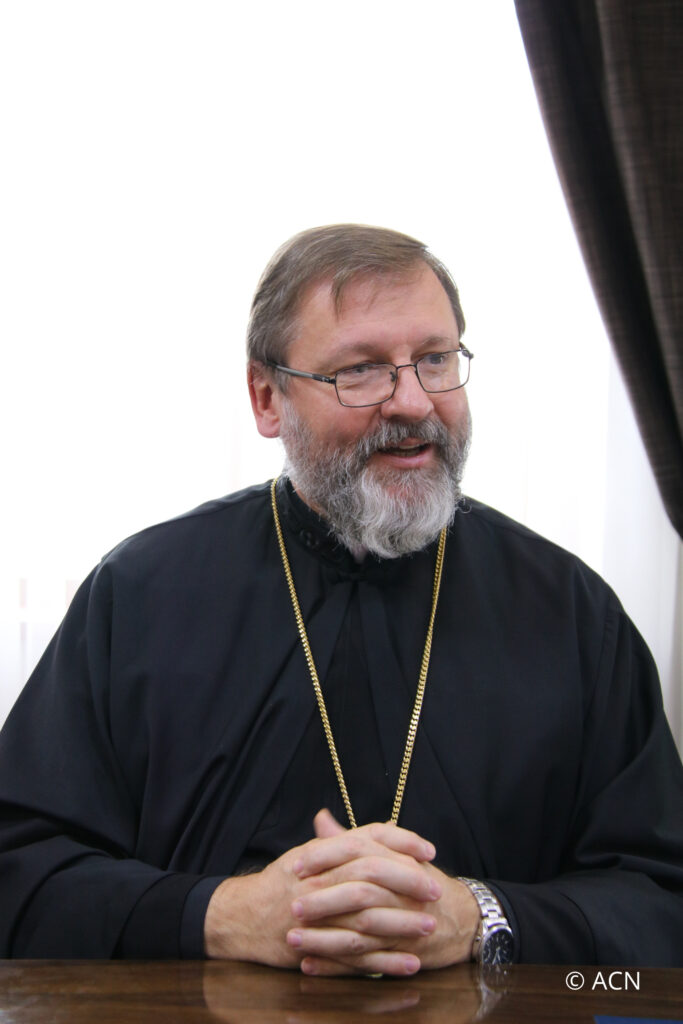
“The future of Ukraine and the Church depends on how we will be able to respond to this need to overcome war trauma, and this trauma has already affected the heart of Ukrainian society: the family,” added the head of the Ukrainian Greek Catholic Church (UGCC).
“Today we have new groups of families to deal with, the families of those who were killed, the families of those who received severe injuries, but also the families of those who are missing. According to Ukraine, 20,000 children were kidnapped by Russia, although Russia speaks of 800,000 deported, but we also have 35,000 people missing in action. The lives of their families are constant torture. One woman, a 23-year-old mother of two, asked me: ‘Am I a widow? Should I pray for my husband as one who is alive, or dead?’ Every time we have prisoner exchanges, and their husbands don’t return, their grief is renewed, so it is constant physical and psychological torture for each family,” he said.
For those who do return, freedom from Russian captivity also has its challenges, according to the apostolic nuncio to Ukraine, Archbishop Visvaldas Kulbokas. “When we speak to people returning to Ukraine, and they describe the conditions in which they were kept, they are horrible, especially for the military. Some of them are unable to speak, they are so traumatized.”
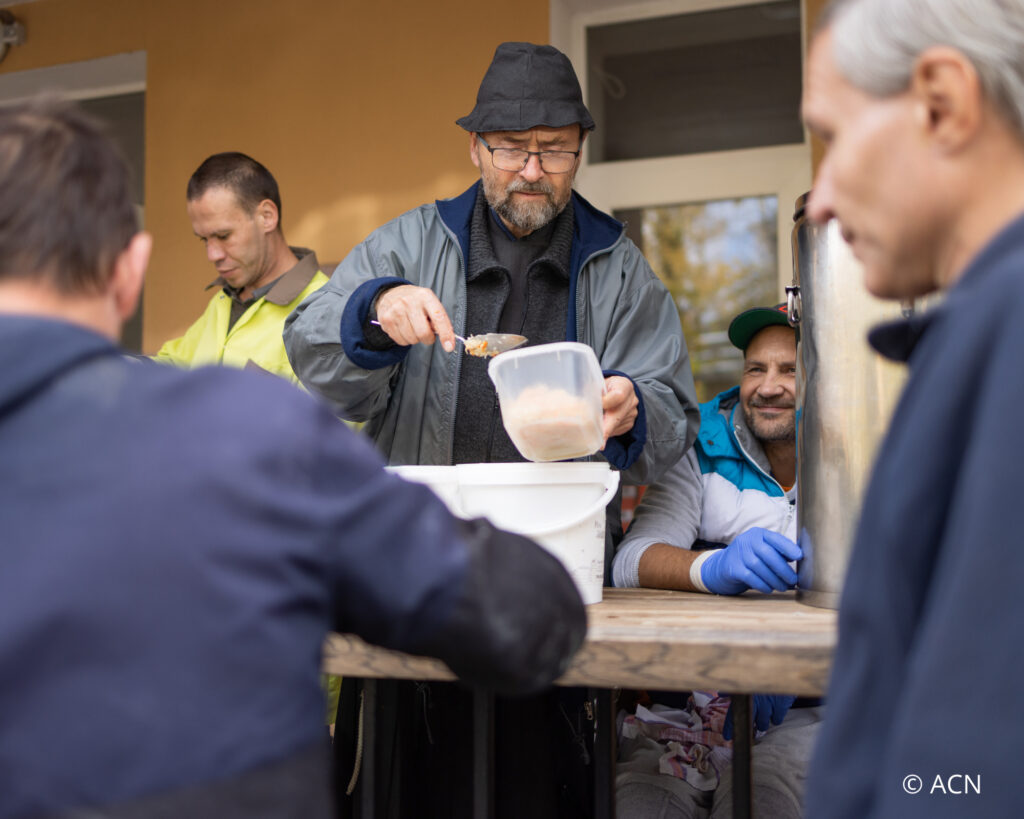
But other families also suffer, according to Major Archbishop Shevchuk. “Today the majority of families live in separation, because the men are in the army and women with children have left their own cities, or even the country.”
The statistics caused by this situation are harrowing. “In 2023, we had 170,000 new families, but there were 120,000 divorces. These are the highest divorce numbers in the history of independent Ukraine. Helping these people is a big challenge for our Church. Very often you can do nothing but be present, cry with them, hold the hand of this woman or this soldier who is experiencing pain. This is the biggest pastoral challenge for me and for the Church today,” said the head of the largest Eastern rite Church in communion with Rome.
A forgotten conflict?
Speaking at the beginning of the conference, Regina Lynch, executive president of ACN, warned that “with so much conflict and unrest around the world at present, we are in real danger that Ukraine could be forgotten, as global attention moves to the next crisis. At ACN, we are determined that this does not happen, and this is part of the reason that we are using this year’s Lenten Campaign to highlight the situation in Ukraine.”
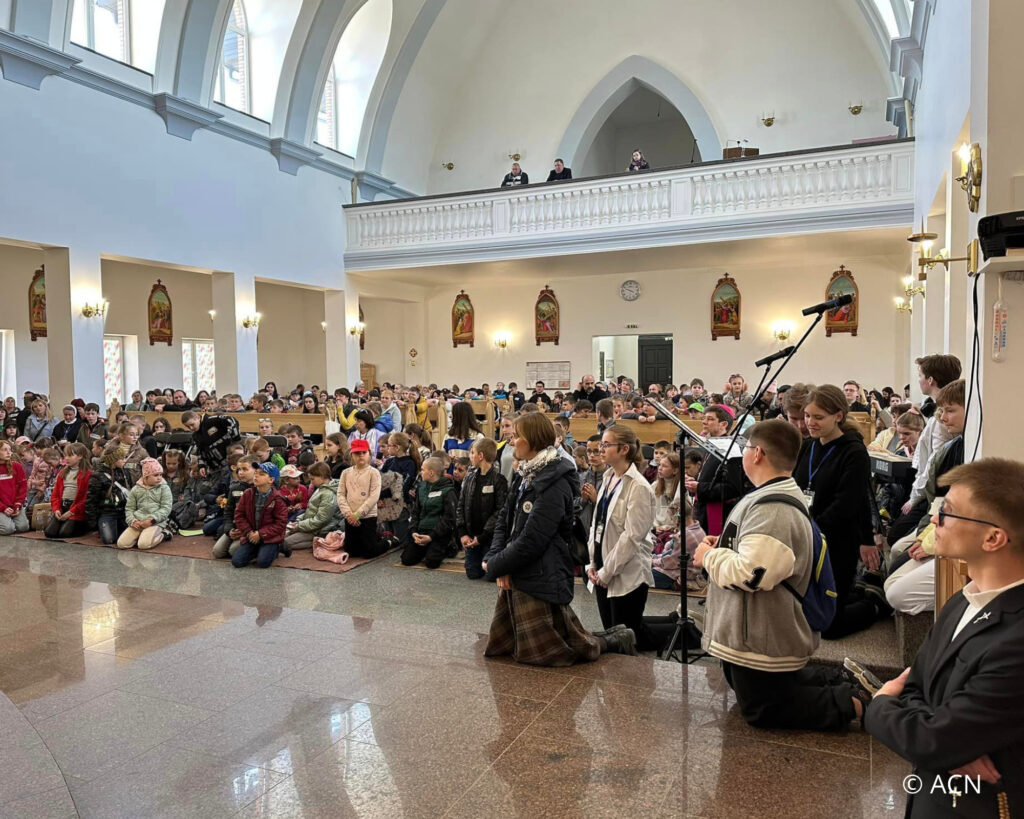
“Ukraine is experiencing its own Way of the Cross. The goal of the campaign is to provide much-needed support during the conflict, including assistance for seminarians, priests, and religious sisters, who help with the care of the displaced and impoverished people as well as with trauma healing for soldiers and their families. We also focus on youth and family ministry. We urge all our friends and benefactors not to forget our brothers and sisters in Ukraine and to pray for them during the period of Lent,” Regina Lynch said.
Archbishop Visvaldas Kulbokas also spoke about this danger. “For people abroad, it is difficult to imagine what is going on here. Some are tempted to think that everything has finished, but we are losing hundreds of lives every day, both military and civilians.”
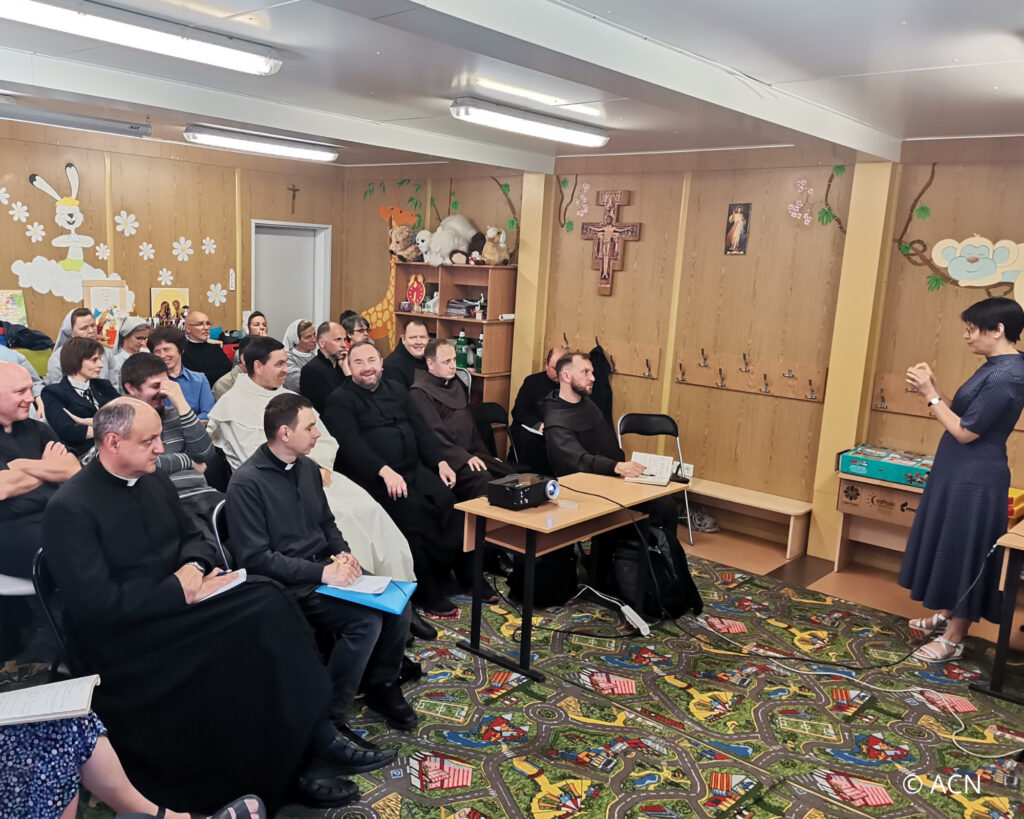
For those living near the frontlines, or in occupied Ukraine, the war is impossible to forget. “The situation on the frontlines is worse than purgatory. There are many people we have no possibility to reach, not even to give food or water,” said the apostolic nuncio.
In the occupied territories, the UGCC has been forced underground, Major Archbishop Shevchuk explained. “There are no more Catholic priests in this part of Ukraine. We received information that in Donetsk, our people were going to the church to pray each Sunday, even without the priest, but the church was seized and the doors closed. In the occupied parts of the Zaporizhzhia region, the Russian authorities issued a special decree forbidding the existence of the UGCC and confiscated our properties, so people are praying in their homes, and if they can, they follow our liturgical services online.”
A stark reminder of the danger facing Catholics in occupied Ukraine is the continued detention of Fathers Ivan Levytskyi and Bohdan Heleta, who were arrested in November 2022. “Are they alive, or are they dead? Since their arrest, we have no information,” said Major Archbishop Shevchuk.
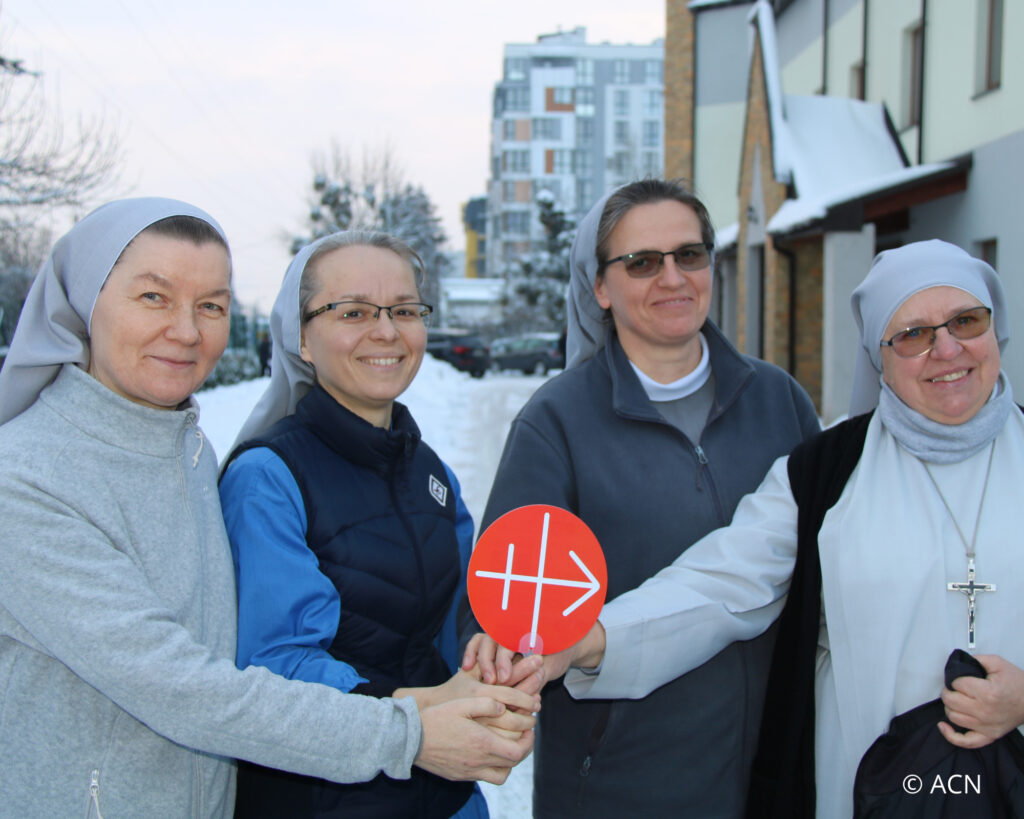
“Thank you ACN for being with us.”
Faced with these enormous challenges, the Catholic Church in Ukraine continues to do what it can. The UGCC has invested especially in programs to provide psychological support for the traumatized, and points to the need to provide assistance to around seven million Ukrainians who are experiencing food shortages, especially those within 50 km of the front line.
Until now, Major Archbishop Shevchuk explained, the coordinated international response has permitted a miracle. “Over the past year, we were able to withstand the largest humanitarian crisis after World War II.” Now, however, the “first euphoria of humanitarian assistance to Ukraine is subsiding, so we need to develop our own logistics to assist those who are in need.”
ACN has been a major part of this effort, and over the past two years, Ukraine was the biggest beneficiary of support from the organization. The international charity has supported over 600 projects since February 24, 2022, including funding the construction of 11 centres to provide psychological and spiritual support, as well as paying for summer camps for children most affected by the fighting, purchasing vehicles for priests and religious to carry out their pastoral ministry, and even providing heating systems and ovens to Church-run institutions, to help them get through the harsh winters.
“Thank you to ACN for your courage, for your visits over these last years, for travelling with us in these painful circumstances. Thank you for being with us in these difficult moments,” concluded Major Archbishop Shevchuk.

